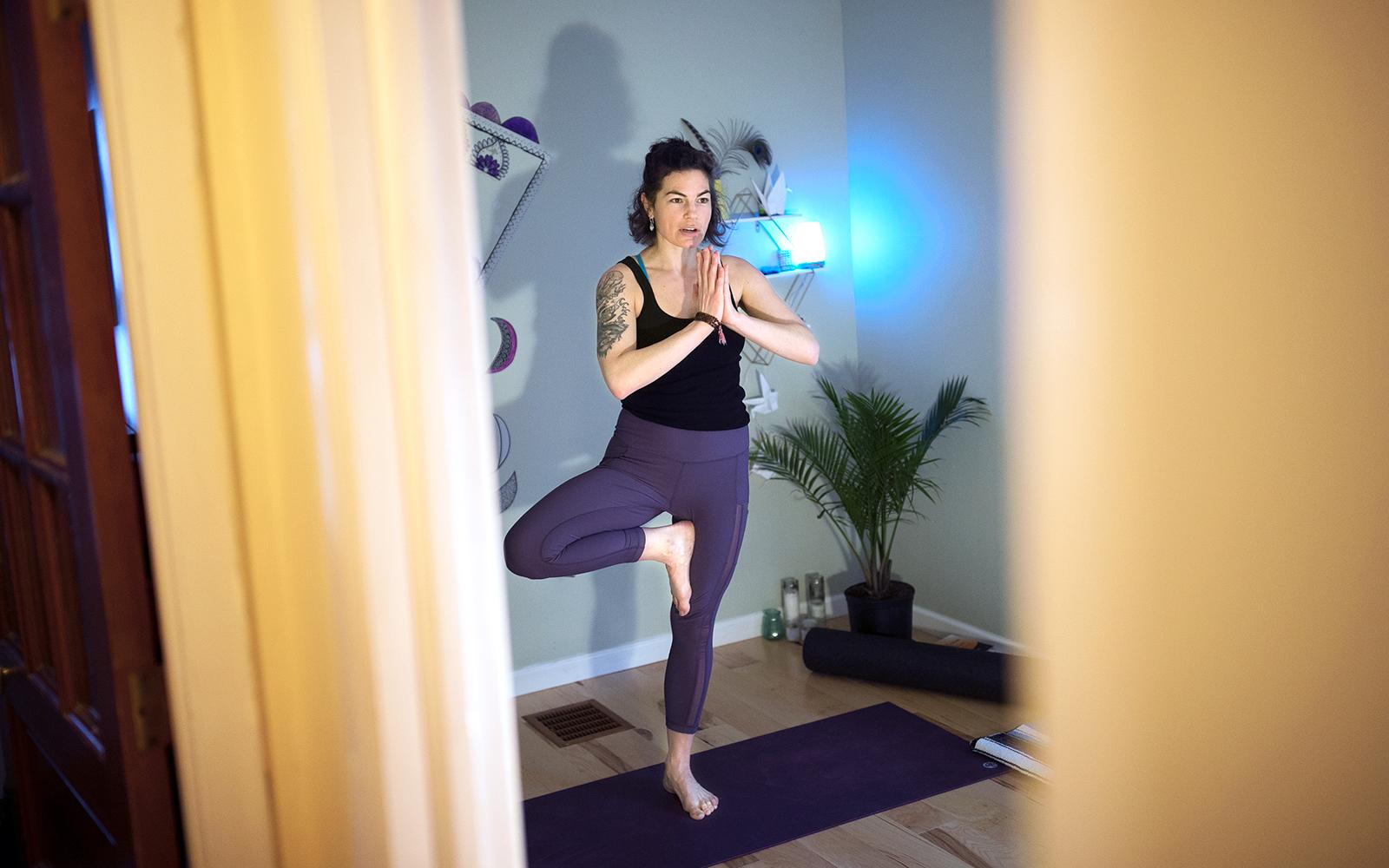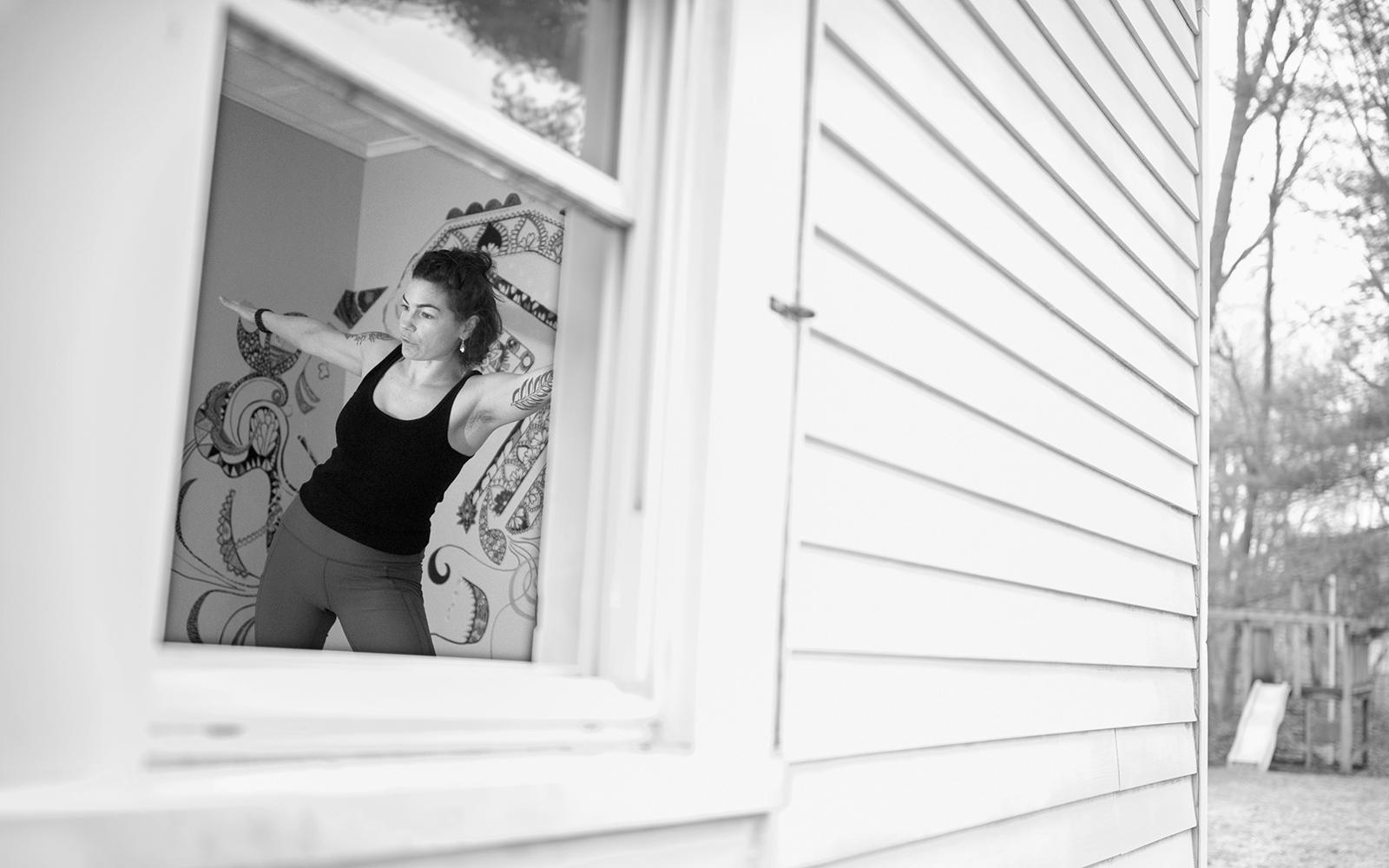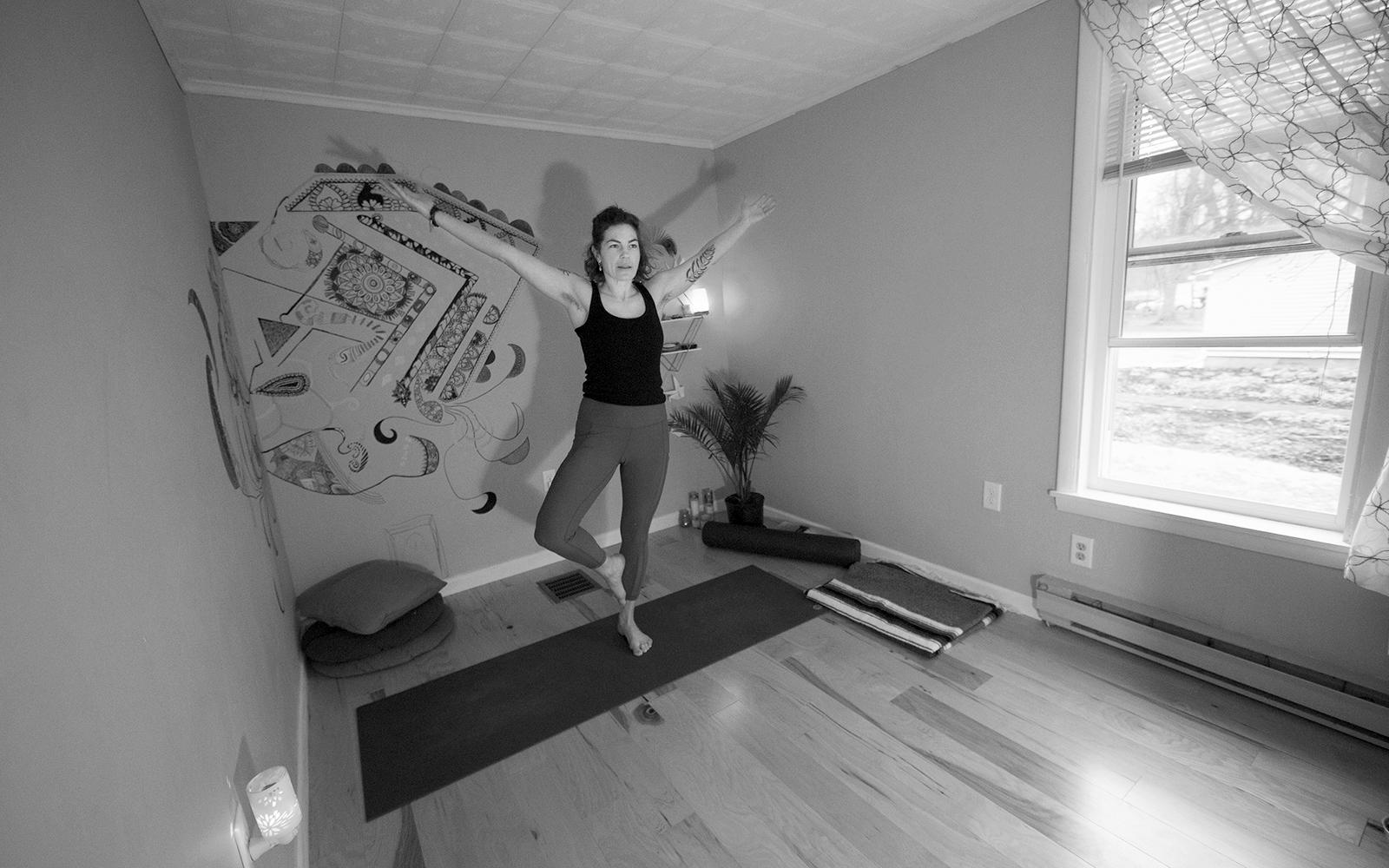Stretching skyward from the tiny studio at the back of her Potsdam home, Rivka Rocchio uses her phone to record yoga techniques for her students. Her routine—like with every other professor and student at SUNY Potsdam—has shifted inward in the wake of the novel coronavirus, COVID-19, and the social distancing that followed. Rocchio has responded—using technology to bridge the physical chasm between her and her students.

“The hardest part is not being able to see them practice, because I can’t correct their alignment and I can’t speak to the energy that’s in the room. I just have to record myself. It’s like being on a standup show with no audience,” she said.
The challenge is particularly real for Rocchio, an assistant professor of theatre at SUNY Potsdam, who relies heavily on an interactive, hands-on approach to teaching. Last fall she directed the mainstage production, “Love and Information,” a 60-minute play that moved throughout the Performing Arts Center, and funneled the audience from one space to the next as they followed the cast. She also taught an applied theatre course where her students co-created and co-performed a short piece of theatre with inmates at the St. Lawrence County Correctional Facility.
Those types of learning opportunities are currently on hold as Rocchio swiftly moved her curriculum online. “In the performing arts, our pedagogy is built and flourishes around in-person, embodied dialogic exchange. We had a week to translate that pedagogy into one that works remotely,” she said. As a single mother, the task is even more daunting as she provides full time care and schooling for her four-year-old, reserving the early mornings or nights to fulfill her professorial responsibilities.
“Being a full-time parent and full-time professor is a complicated and delicate balancing act. I know I have students juggling these responsibilities as well. We grant each other grace and understanding as kids, or dogs, or other family members pop on to the screen for guest appearances,” Rocchio said.

It’s 8 a.m., and as her son watches TV down the hall, Rocchio props up her iPhone on the floor to record short videos on yogic philosophy and yoga techniques at the back of her house. Limited light requires an extension cord and a light to be hung from the doorknob in the room. She talks to her students, while twisting her body into a variety of poses for them to try from home.

“There has never been a more important time to commit to the study and application of performance than now. And I’m so impressed by SUNY Potsdam students’ commitment to the work,” she said.
“Students are doing ballet in their kitchens, filming monologues in their living rooms, and telling stories, making meaning from these incredible conditions. I’m not surprised, as I saw my students’ creativity and adaptability on our campus, but I am astonished by their resourcefulness.”
Her students will be producing monologues or short solo performances individually first, and then share them with other students in the class through their online community. YouTube, Moodle, and Zoom, once platforms to supplement learning, are now imperative for Rocchio’s educational objectives. As she settles into her new role as an online educator, she’s also looking ahead, and plans to keep remote learning part of her curriculum when SUNY Potsdam’s campus is full of life again.

“While there is no approximation for in-class learning, there are some wonderful resources I am excited to share with our students,” she said. “We don’t know how long we’ll be in some form of isolation/distancing/lock down, but we do know that it is the arts that help maintain sanity, a sense of connection, and hope. We’re all streaming performances, listening to full albums, and reading, right?”
This “New Normal” is also about the local community for Rocchio. The people living on her street in Potsdam recently started an email chain to connect every house and help each other out. “There are quite a few elderly people who live alone, so we’re looking out for them. To me, I’m struck by the framing of this as a global and hyper local community commitment,” she said. “We have to ALL commit to the restrictions of the moment, and to the belief that through our joint responses we will move past the crisis. There is not a person on the planet who is not experiencing some anxiety, anticipatory grief, or disruption from COVID-19. When has the human race been uniformly called up to bind together, and responded?”
Article and photos by Jason Hunter
